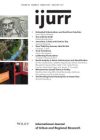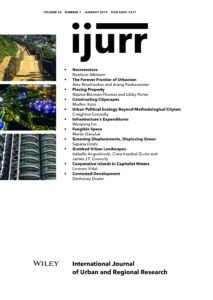This article examines an emerging form of interspatial competition premised on attracting cargo traffic and value‐added logistics activities. Against the backdrop of economic globalization and the revolution in logistics, place‐based actors are increasingly vying to insert their localities into transnational supply chains. I explore the causes, conditions and consequences of this burgeoning growth strategy through a study of the dynamics surrounding the expansion of the Panama Canal, opened to shipping traffic in June 2016, and the consequent battle among North American ports to attract a new generation of oversized container vessels. The spatial practices of mobile actors in the logistics industry, I argue, represent the leading edge of capitalism’s tendency to render places interchangeable—a condition I call fungible space. The abstract logic of spatial substitution, however, can never fully escape the concrete qualities of particular places, which form the very conditions of interchangeability itself. This dialectic of spatial fungibility and geographic specificity has intensified rivalries for volatile commodity flows and made logistics‐oriented development a particularly risky growth strategy for cities. What is at stake in these speculative ventures is the welfare of vulnerable communities and workers, who disproportionately bear the costs and risks of supply‐chain volatility.

